Moçambique: Matola-Rio Municipality removes 'xivotxongo' alcoholic beverages from street stalls
Hidden debts: Attorney-General demands Chang’s extradition to Mozambique – AIM
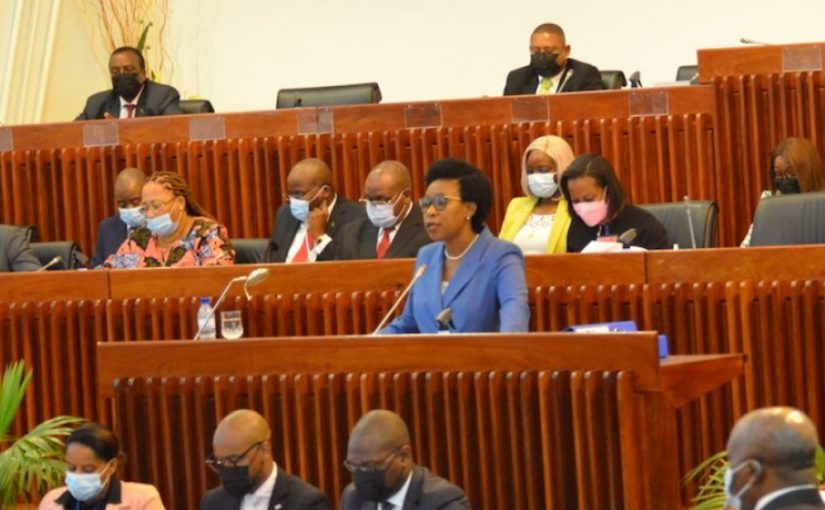
Photo: A Verdade
Mozambique’s Attorney-General, Beatriz Buchili, on Wednesday insisted that Mozambique is the only country that has the legitimacy to bring to trial those involved in the scandal of the hidden debts.
Giving her annual report to the Mozambican parliament, the Assembly of the Republic, Buchili was referring particularly to the case of former Finance Minister, Manuel Chang, who signed the illegal guarantees for the loans, in 2013 and 2014, of over two billion dollars that the fraudulent companies Proindicus, Ematum (Mozambique Tuna Company) and MAM (Mozambique Asset Management) obtained from the banks Credit Suisse and VTB of Russia.
The companies have all gone bankrupt and are now being liquidated. The effect of the state guarantees was to convert loans into debts, and the creditors are demanding that the Mozambican government pay up.
Chang has been in custody in South Africa since December 2018, because the South African authorities have not been able to decide whether to extradite him to Mozambique or to the United States.
Mozambique’s extradition claim is weakened by the fact that the US prosecutors got there first. Chang was held at Johannesburg airport on the basis of an international arrest warrant issued by the US authorities. The US wants to try Chang for conspiracy to commit money laundering, wire fraud and securities fraud.
The US claims jurisdiction because the hidden debts scheme abused the US financial system, and American investors were among those swindled.
But on Wednesday, Buchili insisted that it was fundamental that Chang be extradited to Mozambique, given the key role he had played in the illegal loan guarantees.
Last year it seemed that the Mozambican Attorney-General’s Office (PGR) had won this battle. In mid-August 2021, the South African Justice Minister, Ronald Lamola, informed the PGR that he had decided to send Chang to Mozambique.
But the Mozambican NGO, the Budgetary Monitoring Forum (FMO), backed by South African civil society bodies, appealed against Lamola’s decision. Distrust in the Mozambican legal system is such that the FMO feared that justice would not be done were Chang to be returned to Mozambique.
The FMO submitted an injunction which had the effect of suspending Lamola’s decision. On 10 November, the South African appeals court overturned Lamola’s ruling altogether, and declared that Chang must be extradited to the US.
The following day the PGR declared its intention to appeal and to insist that Chang must be sent to Mozambique. Once again, the extradition was suspended. In December, the PGR appealed to both the Appeals Court and to South Africa’s highest court, the Constitutional Court. Neither court has yet replied to the PGR’s request. Hence the decision to extradite Chang to the US remains in force, but suspended.
Currently, 18 people are on trial before the Maputo City Court facing charges of financial crimes arising from the hidden debts. They include the former head of the Security Service (SISE), Gregorio Leao, and Ndambi Guebuza, the oldest son of former President Armando Guebuza. But even if Chang were to arrive in Maputo tomorrow, it is far too late to add his name to this trial.
Instead, Chang is the main accused in a second hidden debts case before the City Court. Buchili said there are three other accused in this case, all former officials of the Bank of Mozambique. She did not give their names, but it is known that one of them is the former governor of the central bank, Ernesto Gove.
Via the South African authorities, Chang has been notified of the charges against him. There seems little chance of a trial any time soon, since one of the Bank of Mozambique officials has appealed to the Higher Appeals Court against the case coming to trial.
Buchili revealed that a third case has been initiated, in the PGR’s Maputo city delegation, against seven people accused of benefitting from the hidden debts. She did not name them, but said the whereabouts of four of these suspects are unknown.
Chang is not the only suspect the PGR wants extradited to Mozambique to face charges related with the hidden debts. Buchili said the PGR has sent requests for extradition and legal assistance to the US, Britain, Lebanon, Algeria, the United Arab Emirates, Portugal and Turkey.
She did not name the targets for these extradition requests, but they certainly include the three former bankers from Credit Suisse who negotiated the corrupt loans, Andrew Pearse, Detelina Subeva and Surjan Singh. All have admitted to taking millions of dollars in bribes from the Abu Dhabi-based group Privinvest.
The scheme to set up the three fraudulent companies seems to have been concocted by Privinvest, which became the sole contractor for Proindicus, Ematum and MAM. Evidence collected by prosecutors, both in Mozambique and in the US, shows that Privinvest grossly overcharged the Mozambican companies for the fishing boats, radar stations and other assets its provided. An independent audit of the three companies put the Privinvest over-invoicing at more than 700 million dollars.
This certainly provided enough money to offer lavish bribes to the Credit Suisse bankers and to corrupt Mozambican officials.
The PGR’s extradition requests are also likely to include senior Privinvest officials, particularly Jean Boustani, who handled the bribes directly, and possibly the founder and chief executive of Privinvest, Iskandar Safa.
Buchili added that the PGR is continuing to represent Mozambique’s interests in the London courts, where it is asking the courts to declare the loan guarantees null and void. It is suing Privinvest, Credit Suisse, the three corrupt Credit Suisse ex-bankers, and Iskandar Safa, and hopes that the Mozambican state will be awarded compensation of at least two billion dollars
But at the same time, Mozambique is being counter-sued by Privinvest and various banks, particularly Credit Suisse and VTB. All these cases will be heard by the same judge, and his ruling is not expected until 2023.
The Russian invasion of Ukraine may have the side effect of freeing Mozambique from the VTB claims. For VTB is not merely a Russian bank – it is very close to Vladimir Putin’s regime, and is now under international sanctions, which would make it difficult to fight lawsuits in London.




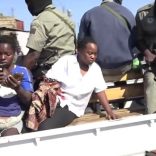
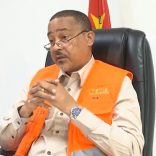
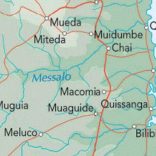
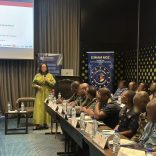




Leave a Reply
Be the First to Comment!
You must be logged in to post a comment.
You must be logged in to post a comment.